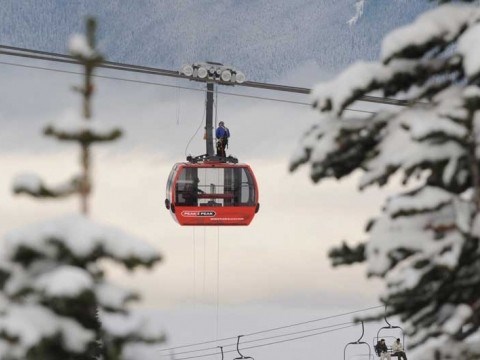Intrawest could avoid an auction in the middle of the Olympics, a finance expert told Pique Monday.
Kai Li, the W.M. Young Chair in Finance at UBC's Sauder School of Business, said in an e-mail that Intrawest could file for bankruptcy and thus bypass an auction by its lenders.
"Bankruptcy will put an automatic stay on the underlying assets, such as the Whistler Blackcomb ski resort," she wrote. "Business could still operate as usual while the lenders and borrowers negotiate on repayment terms, such as delay in principal repayment and interest payments."
Li went on to say that the Feb. 19 auction by Intrawest's lenders is unlikely because the current economic climate doesn't make it feasible. She said there's a growing trend of baby boomers who used to buy recreational properties that are now choosing "less stressful, safer recreational options" than skiing and snowboarding, creating less traffic for winter recreation.
"Given the current economic condition, auction of the assets at a fire sale price does nobody any good," she wrote. "So the likelihood of an auction is extremely low due to lack of buyers and bad prices for the seller (lenders)."
A group of lenders including investment firms Lehman Brothers and Davidson Kempner issued notice last week that they have set an auction for Feb. 19 in New York for a major stake in Intrawest Holdings S.à.r.l., a company subsidiary that holds properties such as Whistler Blackcomb, Mont Tremblant and Steamboat.
The lenders have contracted Delaware-based bank Wilmington Trust FSB to hold the auction, which is accepting bids from any financial institution or otherwise that has the "financial wherewithal" to buy 100 per cent of the membership interests in the company.
The auction comes after Fortress Investment Group, an investment company that owns Intrawest, held unsuccessful talks with its lenders to try and repay a debt of $1.5 billion. The company previously missed payment of a $524 million installment that was due on Oct. 23.
Had it met certain conditions, Intrawest could have got an additional 60-day extension to work on financing of a resort asset and reduce its debt but it never got the extension.
Li also said that Intrawest could file for protection under Chapter 11 of the United States Bankruptcy Code. Companies can continue to operate under this protection while they have their business reorganized by a trustee.
This is to be distinguished from Chapter 7 Bankruptcy, in which a business ceases operations and its assets are redistributed. Intrawest is unlikely to file for bankruptcy under this section, as Li tells it. Filing for bankruptcy under Chapter 11 would allow the company and all its assets to continue operating.
Intrawest spokesman Ian Galbraith would not respond to any questions about bankruptcy and instead offered Pique a media release that said Fortress still owns the company and that it's "business as usual" at all its resorts.
Intrawest previously sold its Copper Mountain resort to the Utah-based Powdr Corporation but it was never confirmed whether the company would use the money to pay down its debt. One analyst speculated that the sale of Copper was worth about $100 million.




